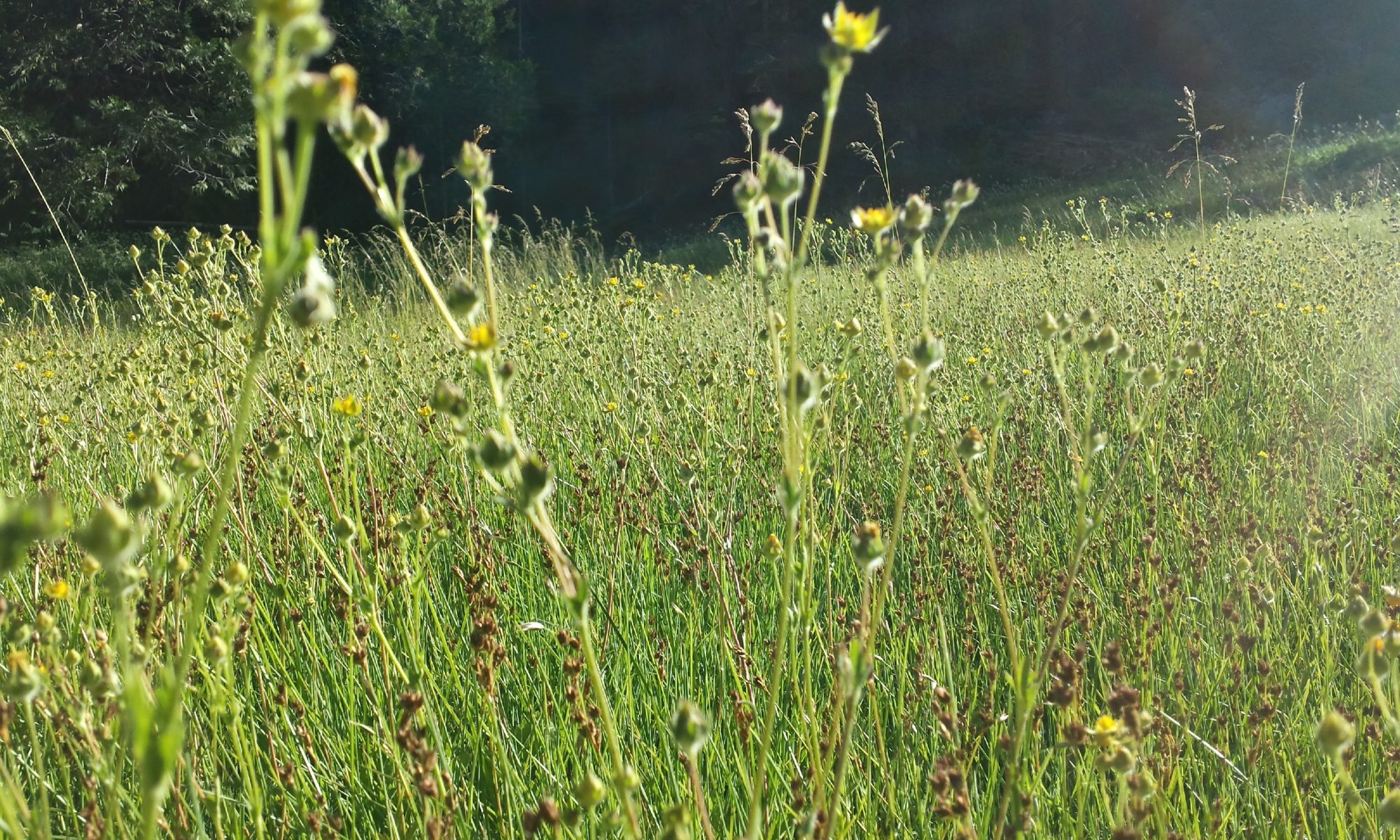Swift Reservoir is a impounded body of water on the south slope of Mount St. Helens. The road that winds around the mountain passes by the reservoir. When Mount St. Helens blew her top, Swift Reservoir received a heavy dose of ash and debris, filling in a great deal of the reservoir’s original capacity.
A Trail of Two Forests
This unassuming hole in the ground next to a boardwalk on the south flank of Mount St. Helens is a remnant of an old forest that once stood on this site. Thousands of years ago, a lava flow crept down the mountain and encircled the old trees. All that remains of that forest are lava casts. A new forest has grown up in place of the old but remnants of what once was.
Lots of holes everywhere. Lots of old trees.
Looking down into a hole.
A new tree growing over the hole of an old tree.
A lava tunnel made from the trunks of trees long gone is open for people to crawl through. A steel ladder leads down into the entrance hole.
Heading down to see what there is to see.
Inside the tunnel. A fallen tree made this lava cast. Note the bark molding on the walls.
Heather crawling into the hole. This isn’t a tunnel for people with claustrophobia or who have rotund proportions.
Another trunk casting.
The exit to the lava tube.
Moss out on the old lava flow.
Lahar Viewpoint
 Heather is motioning toward where the massive lahar seen to her left originated: Mount St. Helens.
Heather is motioning toward where the massive lahar seen to her left originated: Mount St. Helens.
 Now everything is calm but back in 1980 when Mount St. Helens awoke, this area would not have been safe to be anywhere near. A huge flow of rock, mud, ice, and other volcanic debris raced down this canyon, scouring the land.
Now everything is calm but back in 1980 when Mount St. Helens awoke, this area would not have been safe to be anywhere near. A huge flow of rock, mud, ice, and other volcanic debris raced down this canyon, scouring the land.
 What was once a beautiful, classic Cascade peak is now a jagged reminder of the active volcanology that builds the Cascade Mountains.
What was once a beautiful, classic Cascade peak is now a jagged reminder of the active volcanology that builds the Cascade Mountains.
 Another view of the mountain from a little further down the road.
Another view of the mountain from a little further down the road.














